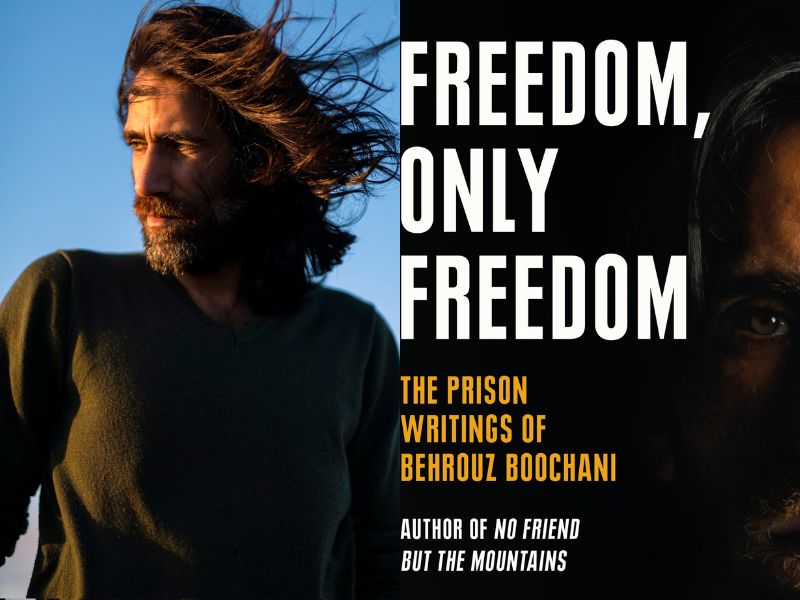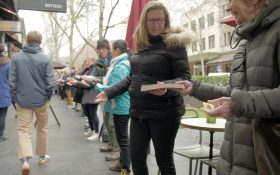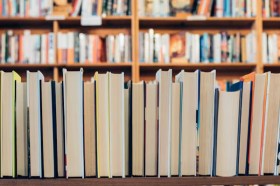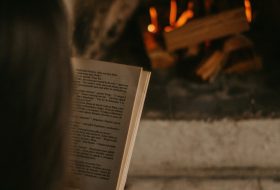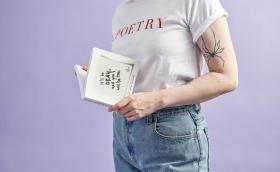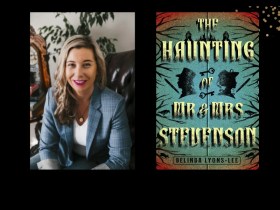Freedom Only Freedom is an essay collection that reifies the notion that collective creativity is a balm to the soul. As well as essays by Behrouz Boochani that bring innovations to familiar themes, there are pieces by fellow journalists and distinguished supporters.
The Saturday Paper’s Erik Jensen writes about the publishing event of Boochani’s award-winning first book, No Friend But The Mountains and makes the necessary civil rights comparison to Martin Luther King’s Letter From Birmingham Jail. Historian Jordana Silverstein writes about Boochani’s testimony as a memorial archive not unlike the archive of Holocaust survivors such as Silverstein’s grandparents.
The Guardian journalist writes with the authority of fact on Australian corruption in the Pacific. And Anne McNevin’s philosophically sophisticated essay about epistemic care – care based on ways of knowing – reminds us that when we are talking about the ways authorities use language violently we are also talking about acts of violence that should be exposed by a multitude, not just a lone creative genius.
For those who unaware of the extraordinary circumstances surrounding the writing and eventual publication of No Friend But The Mountains, this autobiographical account of Boochani’s journey to Christmas Island and subsequent incarceration in an immigration detention centre was published in 2019. Boochani had to barter cigarettes for time to write it. Imprisoned on Manus Island, the refugee writer’s saved cigarettes could be exchanged for a mobile phone, which he could then use to send fragments in Persian via WhatsApp to his friend, a community worker and advocate Moones Mansoubi.
The fragments were notable for their blend of anecdote and essay, Dickensian portraits and fierce polemic, with themes that included the injustice of arbitrary detention, the peril and bravery of the journey over, and the character sketches of the people Boochani met in immigration detention.
The Academic Omid Tofighian and Mansoubi would sequence it with his existing passages, then they would move on to the next. Three of them collaboratively came up with a book-length collection of essays that came to the attention of literary agent Jane Novak.
The rights were sold into nine territories, including the UK and the US, and the book was the recipient of several awards. When it won the Victorian Prize for Literature and the Victorian Premier’s Literary Award for Non-Fiction, Novak stayed up all night as messages of congratulations and support came in from all over the world.
In his current collection, Freedom Only Freedom, the themes are familiar, but they are articulated with greater confidence and authority. One of its central arguments, voiced to The New York Times, is that immigration detention is a site of systematic torture of refugees. This argument, while emotive, and full of integrity, is hard to prove legally: it rests on whether abuse of refugee detainees is intentional, and for the purpose of extracting information or deterring further migration.
Whether or not it is provable to a legal standard, as an ethical argument it is arresting, and Boochani’s eye witness reports from detention are alive with human detail. The stories of children separated from parents or the ubiquity of self-harm underscores the fact that this pageantry of human suffering is real and urgent, whether or not it is intentional.
Boochani’s writings resolve this quandary with a bold but familiar refrain: calling for the ‘audacity of hope’. The presence of so many anthologised authors who stand alongside Boochani makes this second collection just as essential as the first, and shows that everyone has a role to play in trying to maintain optimism in the hopeless situation of mandatory immigration detention.
Bringing hope is an essential role of art and Boochani should be recognised as an artist of great formal dexterity as well as skill. In addition to these two essay collections, Boochani has written a play, Manus, and collaborated with a group of artists on a video installation, Remain. This installation has been staged in Iran as well as Bangladesh, where it served to illustrate the plight of the Rohingya refugees from Myanmar. It also had a season at the Adelaide Festival in 2019.
Freedom Only Freedom is the latest in a series of works by refugees to place their hope and compassion to the centre of Australian culture. Boochani has written that these detention centres are a mirror that show Australia the negative image of all its mythos about egalitarianism, fair-mindedness and luck. If that is the case, we should hope that it is more than a trick mirror, and that it enables us to see a true reflection of what human suffering says about the capacity to be human.
Read: Book review: A Brief Affair, Alex Miller
No Friend But The Mountains was a classic of Australian literature; Freedom Only Freedom is something better. It is the definitive statement on freedom from a diverse group of writers working together on familiar themes.
Freedom Only Freedom: The Prison Writings of Behrouz Boochani . Edited and translated by Omid Tofighian and Moones Mansoubi
Publisher: Bloomsbury
ISBN: 9780755649358
Format: Paperback
Pages: 344 pp
Publication date: 15 November 2022
RRP: $32.99
